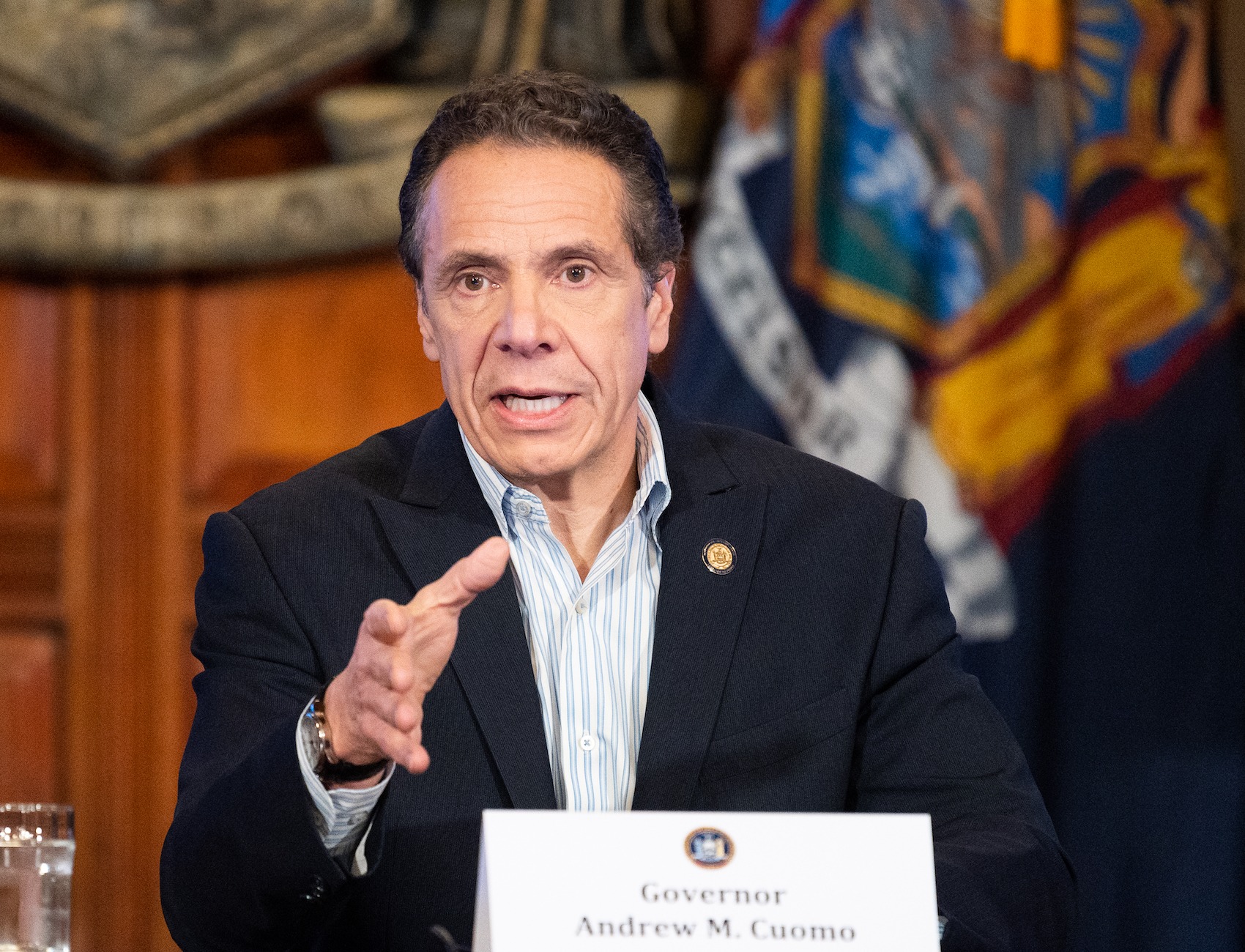New York Retreats on Bail Reform Amid Coronavirus Outbreak
The state, which accounts for roughly one-third of all positive COVID-19 cases in the country, is facing a rapid spread of the disease in its jail and prison systems.

Amid an unprecedented pandemic that has hit hardest in New York, the state legislature passed a rollback of its landmark bail reform law, a move that will potentially land many more people in jails and put them at increased risk of contracting COVID-19, and took no action on a number of other reform measures.
The original bail reform bill, passed last year, barred New York judges from setting cash bail for most misdemeanors and nonviolent felonies. The Vera Institute for Justice estimated that the change would reduce the number of people sitting in New York jails, awaiting trial and unable to post bail, by at least 40 percent.
Now, embedded in this year’s state budget, which Governor Andrew Cuomo signed into law Friday, is a provision that makes more than a dozen additional crimes eligible for bail, including first-degree grand larceny, second-degree burglary if someone enters a home, and escape from custody.
At a time when advocates have been calling for more people to be released from prisons and jails to protect their health and stem the spread of coronavirus, advocates worry that these changes will only lead to more people being incarcerated.
The move “will cause grave injustice, disproportionately impact Black and Latinx people, and likely result in thousands of more people each day and tens of thousands each year locked in local jails across New York State,” according to a joint statement released Friday by criminal justice reform groups VOCAL-NY, the #HALTsolitary Campaign, Release Aging People in Prison Campaign, Parole Preparation Project, and Worth Rises. “[T]he so-called progressive Democratic legislators in New York State have taken no measures to protect people in their prisons and jails and will actually be increasing the number of people incarcerated,” they wrote. “This is unconscionable.”
At the same budget session, state lawmakers took no action on a number of criminal justice reform bills that have already been introduced, including the legalization of growing and using marijuana, voting rights and higher wages for people incarcerated in state prisons, and repeal of the “walking while trans” statute that criminalizes “loitering for the purpose of engaging in a prostitution offense” and has been disproportionately used against trans people.
On Sunday, Michael Tyson became the first prisoner in New York City to die of COVID-19. He had been jailed on a technical parole violation on Rikers Island, which, on Friday, had 239 positive cases of the disease, according to the Legal Aid Society.
On March 30, Juan Mosquero became the first person in the New York prison system to die after contracting COVID-19. He was being held at Sing Sing Correctional Facility, where 29 officers and six incarcerated people have tested positive. On Friday, advocates held a rally outside of Sing Sing in response to Mosquero’s death, echoing weeks-long calls for Governor Andrew Cuomo to grant emergency clemencies. As of Thursday, 18 incarcerated people and 122 corrections staff in New York State prisons have tested positive for COVID-19 , according to VOCAL-NY.
Meanwhile, the New York Police Department has started to enforce measures meant to stem the spread of coronavirus. Three people were arrested in Brooklyn the weekend of March 28 after allegedly failing “to maintain social distancing,” according to court documents reviewed by The Intercept. One of the women who was arrested told The Intercept that officers who weren’t wearing masks took her to the local precinct and then to central booking. She was made to share a cell with two dozen other women for 36 hours, during which time an officer once distributed drops of hand sanitizer. After she was released, her employer refused to let her return to work for fear that she had been exposed to COVID-19 while in custody.
Cuomo has continued to call for more policing to enforce social distancing in the state, saying that the NYPD “has to get more aggressive,” and that he might enact a “social distancing law.”
In their statement Friday, advocates admonished lawmakers over their response to the crisis: “[T]hree months into this year’s legislative session, and over a month into the devastating coronavirus crisis, the only thing the fully Democrat-controlled New York State legislature has done this year related to the state’s racist carceral system is to increase the number of people in jails and prisons.”
